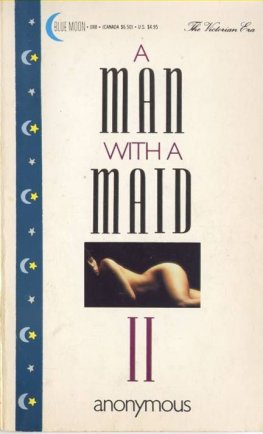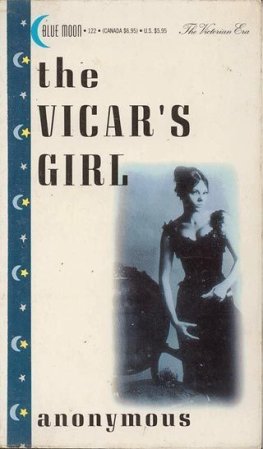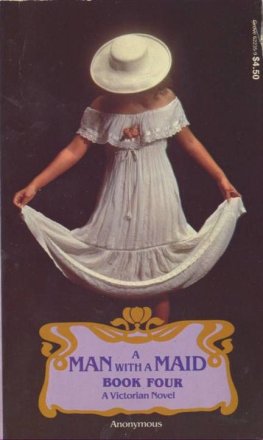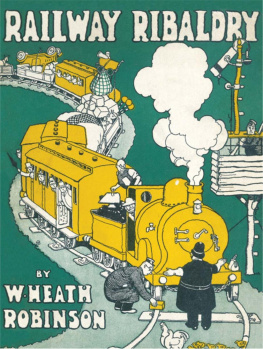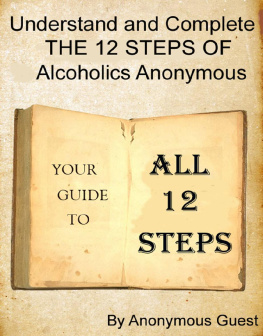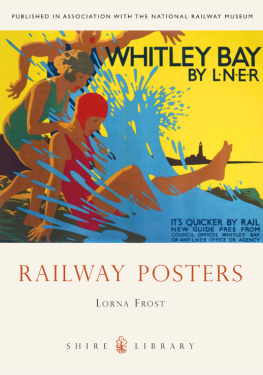Anonymous - Raped on the Railway
Here you can read online Anonymous - Raped on the Railway full text of the book (entire story) in english for free. Download pdf and epub, get meaning, cover and reviews about this ebook. genre: Romance novel. Description of the work, (preface) as well as reviews are available. Best literature library LitArk.com created for fans of good reading and offers a wide selection of genres:
Romance novel
Science fiction
Adventure
Detective
Science
History
Home and family
Prose
Art
Politics
Computer
Non-fiction
Religion
Business
Children
Humor
Choose a favorite category and find really read worthwhile books. Enjoy immersion in the world of imagination, feel the emotions of the characters or learn something new for yourself, make an fascinating discovery.

- Book:Raped on the Railway
- Author:
- Genre:
- Rating:3 / 5
- Favourites:Add to favourites
- Your mark:
- 60
- 1
- 2
- 3
- 4
- 5
Raped on the Railway: summary, description and annotation
We offer to read an annotation, description, summary or preface (depends on what the author of the book "Raped on the Railway" wrote himself). If you haven't found the necessary information about the book — write in the comments, we will try to find it.
Raped on the Railway — read online for free the complete book (whole text) full work
Below is the text of the book, divided by pages. System saving the place of the last page read, allows you to conveniently read the book "Raped on the Railway" online for free, without having to search again every time where you left off. Put a bookmark, and you can go to the page where you finished reading at any time.
Font size:
Interval:
Bookmark:
Anonymous
Raped on the Railway
THE LAW OF RAPE
I have always, as a doctor and a man of the world, had a horror of rape on infants and children. Nothing can be more shocking than to take a helpless child and endeavour to satisfy one's lust upon its innocent body. Cases of rape on vigorous adult women come under quite a different category. We all know of the clever answer which, it is said, was made by Catherine of Russia or, as other people say, Napoleon the First, to the woman who came with a complaint that she had been tripped on her back and ridden by some hot-blooded soldier against her will. The monarch took a sword and, drawing the blade from the scabbard, invited the violated woman to plunge the steel back again into the empty sheath while he wriggled it before her.
Of course the lady was unable to do so, and her case was consequently non-suited. Balzac has a similar delightful story where, instead of sword or scabbard, a piece of thread and the eye of a needle were employed, and instead of an Emperor, the person who posed the problem was a judge. But that is another story, as Rudyard Kipling would say, for the girl did succeed in a most ingenious manner, which proves how dangerous it would be if women were furnished as men are, and able to commit rapes on us.
For any of my readers who may be contemplating the luxury of rape on the servant-maid, or some beautiful cousin of the proper age, I think it only right to warn them not to get caught.
Probably there is no more delightful pleasure than getting the better of a much desired, stout-thighed, but unwilling, lady. But the devil of it is that if she be at all inclined to do so, she might make it what is elegantly termed: damned hot for her ravisher.
Those unfortunate gentlemen therefore who may be slow-witted enough to get nailed and collared in the fascinating act, will require to know the law on this subject. We take the liberty then to state that rape is defined in law to be the carnal knowledge of a woman by force, and against her will. For a long period it was punished as a capital crime in this country, but penal servitude or imprisonment was substituted by the 24 and 25 Vict. c. 100, S. 48. Under this section it is enacted that whosoever shall be convicted of the crime of rape shall be guilty of felony, and being convicted thereof, shall be liable, at the discretion of the court, to be kept in penal servitude for life, or for any term not less than three years, or to be imprisoned for any term not exceeding two years, with or without hard labour. Since these changes have been made in the law, it has been alleged that the crime has undergone a considerable increase. Taylor, a great authority if there ever was one, on Medical Jurisprudence, says:
Medical evidence is commonly required to support a charge of rape, but it is seldom more than corroborative, the facts are, in general, sufficiently apparent from the statement of the prosecutrix. There is, however, one case in which medical evidence is of some importance, namely, when a false accusation is made. In some instances, as in respect to rape on infants and children, the charge may be founded on mistake, but in others there is little doubt that it is often willfully and designedly made, for motives into which it is here unnecessary to inquire. Amos remarked, that for one real rape tried on the Circuits in his time, there were on the average twelve pretended cases. In some few instances these false charges are at once set aside by medical evidence in others, medical men may be sometimes the dupes of designing persons, but in the majority, the falsehood of the charge is proved by inconsistencies in the statement of the prosecutrix herself.
It is pleasant to know that some of these charges are made up, and that there is always a chance for a man to get off, although he may, after all, have really climbed between the lady's lovely legs. We give a newspaper extract, to illustrate our meaning.
DUDLEY WOMAN'S EXTRAORDINARY STORY
At the Dudley Police Court, seven powerfully built and intelligent looking men, all of about 20 years of age, were charged with feloniously assaulting Sarah Adams (40), Newhall Street, Dudley.
Mr. S. defended.
Prosecutrix stated that she had lived apart from her husband for eleven months, but they had resumed cohabitation. On Saturday night, at about eleven o'clock, as she was walking from-Tipton to Dudley, on the right-hand side of the road, she saw prisoners coming down on the opposite side, singing and shouting. She met them between the Guest Hospital and the goods station. The tallest of them left his companions, saying: Good-night, kids, and crossing over to witness, placed his arm round her neck and observed: You have got to come with us and dance us upon your belly. Witness said: For God's safe let me go home. Her assailant however, replied: Yes, when we've d d well rogered you, and dragged her across the road to his companions, who called out: Bring her here. He then dragged her about 150 yards down the Tipton Road, to the turnstile from which the footpath goes to Fisher's Bridge. At the turnstile, the others laid hold of her, and she was violently pulled into the field, where she was thrown down behind the hedge adjoining the main road, her clothes thrown up over her head, and her drawers literally torn off. Witness, who had repeatedly called out while being dragged down the road, now pleaded for mercy, asking them if they had mothers and sisters. The reply was: We would do the same to them if they were here. She continued to struggle, and one of them remarked: If you don't shut up, we will shut you up for ever. Feeling faint, she said: Let me have air; I think I am dying, but they paid no attention to her entreaties, and each, she alleged, criminally assaulted her. She also alleged that Smith put his hand into her pocket and took her purse. Hearing footsteps, she again called for help, and two men looked through a gap in the hedge and said: It's a woman; let her go. Only one of her assailants was then molesting her, he being on the top of her body, and executing a series of violent movements, the others being engaged investigating the contents of her purse. The men who had come on the scene assisted her into the road, and conducted her as far as the railway station. Here they met a police officer, to whom she made a complaint, and to whom the two men who had befriended her gave their names. The men who had maltreated her followed them up the road, using foul and threatening language; but directly they saw the policeman they ran away.
Replying to Mr. Ward, witness said she had been visiting a Mr. and Mrs. P. at Tipton, but refused to give their address. She admitted having been in more than one public-house in Tipton before she met her friends.
A man named Job Langford said he and a companion heard a commotion in a field near the Guest Hospital, and on looking through the hedge saw prosecutrix sitting, on the grass with a number of young men round her and her clothes tucked up in a most indecent way. She took his companion's arm, but neither in the field nor on the way to the railway station did she make any complaint of having been cohabited with against her consent.
The magistrates said no jury would convict on such evidence, and dismissed the charges.
It is not our intention here to go further into the law of this highly interesting subject. If any of our readers wish to do that, we would recommend them to read up the various textbooks, and particularly Untrodden Fields of Anthropology, (Paris, 1898, 2 vols of 520 amp; 380 pages respectively). In this work he will find the whole subject handled in a most edifying manner, and, there is no doubt that he will become very interested.
Font size:
Interval:
Bookmark:
Similar books «Raped on the Railway»
Look at similar books to Raped on the Railway. We have selected literature similar in name and meaning in the hope of providing readers with more options to find new, interesting, not yet read works.
Discussion, reviews of the book Raped on the Railway and just readers' own opinions. Leave your comments, write what you think about the work, its meaning or the main characters. Specify what exactly you liked and what you didn't like, and why you think so.



